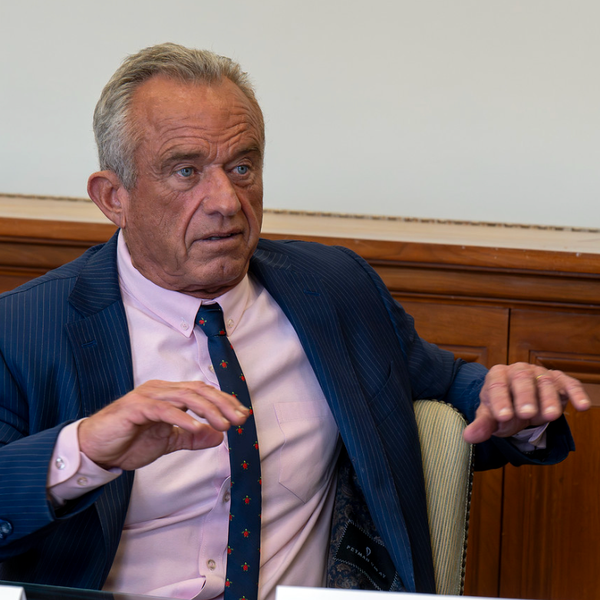State Supreme Court Upholds Wisconsin’s Voter ID Law

By Patrick Marley and Bruce Vielmetti, Milwaukee Journal Sentinel
MADISON, Wisc. — A divided state Supreme Court on Thursday tweaked a provision of Wisconsin’s voter ID law to put it in keeping with the state constitution, making it easier for people to get identification cards without having to pay anything.
Despite Thursday’s rulings in two challenges of the law, the requirement to show photo identification at the polls remains blocked because a federal judge in April found Wisconsin’s voter ID law violates the U.S. Constitution and federal Voting Rights Act. That decision is now under review by the U.S. 7th Circuit Court of Appeals in Chicago.
Because of the pace at which the federal case is moving, the voter ID requirement is not expected to be in place for the state primary Aug. 12 or the general election Nov. 4, when Republican Gov. Scott Walker faces Democrat Mary Burke.
The Wisconsin Supreme Court ruled in two cases, upholding the voter ID law 4-3 in one and 5-2 in the other.
In one case, the court majority crafted a “saving construction” of the voter ID law to keep it from being unconstitutional — a part of the ruling aimed at preventing the state from requiring voters to pay any government fees to get a state-issued ID card.
How that would work is unclear.
“I am confounded by that, by the saving construction, because there are no standards for how to apply it,” said Madison attorney Lester Pines, who represented the League of Women Voters of Wisconsin in one of the voter ID cases.
“I find that to be very odd. I find it to be unworkable and it’s going to lead to more litigation.”
Currently, people can get free photo ID cards for voting from the state, but they have to produce certified copies of their birth certificates — which cost $20 apiece in Wisconsin — to get them. The majority saw that as a problem.
“The modest fees for documents necessary to prove identity would be a severe burden on the constitutional right to vote not because they would be difficult for some to pay. Rather, they would be a severe burden because the State of Wisconsin may not enact a law that requires any elector, rich or poor, to pay a fee of any amount to a government agency as a precondition to the elector’s exercising his or her constitutional right to vote,” Justice Patience Roggensack wrote for the majority in a case brought by the Milwaukee branch of the National Association for the Advancement of Colored People.
To keep the law intact, the majority employed a saving construction of the state’s administrative code to require the Division of Motor Vehicles to issue photo ID without requiring a birth certificate or other documents that require fees.
“As the (U.S.) Supreme Court has explained, it is best to ‘limit the solution to the problem’ rather than enjoining the application of an entire statute due to a limited flaw,” the majority stated.
The majority left DMV administrators with some discretion on when to issue voter ID cards without birth certificates or other documents. That opens the possibility for more legal disputes.
In dissent in both cases, Chief Justice Shirley Abrahamson wrote it was “anyone’s guess” as to which government costs voters could avoid, noting fees are charged for an array of documents that could be used to get IDs, such as marriage certificates, judgments of divorce, and naturalization papers. She argued the court shouldn’t be interpreting regulations that aren’t before it, such as the administrative code the majority rewrote.
Because the burden on voters is severe and the state has not shown a compelling interest served by requiring photo ID, the voter ID law should be struck down as unconstitutional, she wrote.
“Today the court follows not James Madison — for whom Wisconsin’s capital city is named — but rather Jim Crow — the name typically used to refer to repressive laws used to restrict rights, including the right to vote, of African-Americans,” Abrahamson wrote for the dissenters in the second case, brought by the League of Women Voters.
She noted that in the NAACP case, the majority conceded that the cost of a birth certificate amounts to a poll tax, but in the League of Women Voters case declared all of the voter ID law, known as Act 23, constitutional. Neither opinion explained the inconsistency, she wrote.
In the league case, she contended the majority opinion gave “Wisconsin the most restrictive voting laws in America, laws that systematically disenfranchise entire classes of individuals who are without the required Act 23 photo ID.” The pair of rulings “undermines the very foundation of our democracy and deprives individuals of the most sacred of constitutional rights through no fault of their own,” she wrote.
She also tweaked the majority for rewriting the voter ID law to craft it in a way those justices considered constitutional — a task Abrahamson said that should have been left to the Legislature.
The voter ID decisions are a victory for Walker, Attorney General J.B. Van Hollen and other supporters of voter ID. But to put the requirement in place, they must overcome the federal litigation in the months ahead.
Walker praised the ruling in a statement.
“Voter ID is a common sense reform that protects the integrity of our elections,” his statement said. “People need to have confidence in our electoral process and to know their vote has been properly counted.”
Burke has said she disagrees with the voter ID law.
“Mary opposes unnecessary photo ID restrictions that make it harder for seniors, students, and veterans to vote and the restrictions on early voting signed into law by Walker,” Burke spokesman Joe Zepecki said in an email Thursday.
Photo: Erik Hersman via Flickr
Interested in national news? Sign up for our daily email newsletter!








